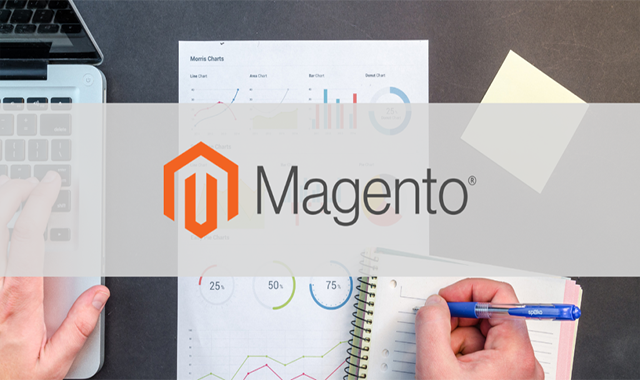
Fact: 93% of business-to-business buyers prefer to purchase online, with self-serve information, direct from vendors. As trends change and eCommerce continues to grow, B2B customers now desire (better word: demand) a B2C shopping experience. Luckily for merchants, Magento has been hard at work creating the ideal platform for online B2B sales and have made massive updates to the platform in 2017 to stay ahead of coming advancements in the world of eCommerce.
Since its 2017 update, Magento has emerged as a fresh face and ideal candidate for B2B organizations looking to simplify their processes and work more effectively. For those still unsure of what Magento has to offer to B2B companies, we’ve compiled a list of just a few of the great features the platform offers.
The Benefits of Using Magento for B2B eCommerce
Designed to Drive Growth
Magento is chock-full of features that have been designed specifically to elevate B2B sales success. Streamlined workflows are already in place upon installation, meaning that administrators can effectively handle quote requests and pricing negotiation without a hitch. Users also have the option to create custom catalogs and price lists to send to specific clients and companies.
Additionally, you can integrate Magento with any ERP, CRM, or backend using extensive API’s and off-the-shelf extensions, and drive recurring revenue with frictionless ordering and reordering of common purchases.
The Stats
Without any sort of statistical analysis, it’s hard to tell what works and what doesn’t when it comes to B2B eCommerce. Luckily, Magento has publicized some eye-catching numbers that are sure to pique any B2B organization’s interest:
- $101 billion in sales in digital commerce in 2016
- 51 million consumers worldwide who purchased from Magento Merchants
- 260,000 total merchants (and growing!)
- 30% faster sales growth for merchants than any other platform
Corporate Account Management
With Magento, B2B companies gain access to a host of self-service account tools and some of those tools are ideal for organizations who sell to corporate accounts with numerous buyers. Magento merchants can submit requests for company accounts, arrange buyers within a hierarchy to match business structure, and designate super-users to manage a company’s account.
Beyond these features, companies have the freedom to map company profiles in order to meet a variety of needs. Whether a business wants to break up clients by teams, regions, or any other method, Magento can support those goals. Companies and buyers all have their own permissions and roles assigned to them in order to ensure that everybody has access to what they need (and nothing more).
Personalized Quoting
Countless B2B companies rely on quoting for a massive portion of their work. Thanks to Magento’s effort to configure their B2B functionality, B2B clients can request quotes from their cart and even from previous orders. Sellers have the option to offer quotes to everyone or set parameters based on things like purchase size, dollar thresholds, etc.
Merchants have the freedom to configure quotes any way they’d like. From expiration dates to comments, names, and adding or deleting products from a quote, Magento allows administrators the time they need to do the work that keeps a business running.
Encourages Speedier Purchases
Magento implements a variety of methods in order to drive clients to check out and make purchases quickly. B2B administrators have the option to enter SKUs that clients are interested in so that Magento can automatically notify customers when that inventory becomes available. Clients are also free to upload CSV files during their buying experience to make completing the order process quick.
Customers Can Pay on Credit
Previously, buyers could only complete transactions with Magento Merchants through PayPal or credit card payments. Following the Magento 2.2 update, though, clients are now free to utilize a payment on credit option if necessary. Merchants, of course, retain the ability to configure the credit options for their store and create purchasing conditions that work for them.
For merchants interested in offering credit payments to their clients, setting limits on who can pay on credit and when is easy. It’s also simple to adjust minimum and maximum order limits and restrictions for certain geographical areas.
If you’re interested in learning more about utilizing Magento for your B2B company, contact us today. We have extensive knowledge in the realm of B2B eCommerce and are eager to speak with you and address your concerns about implementation and growing your business effectively.